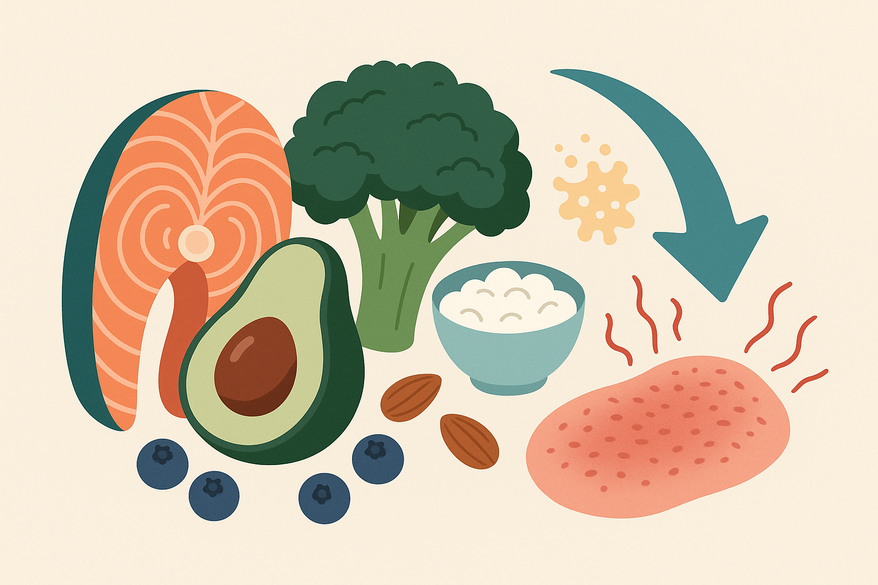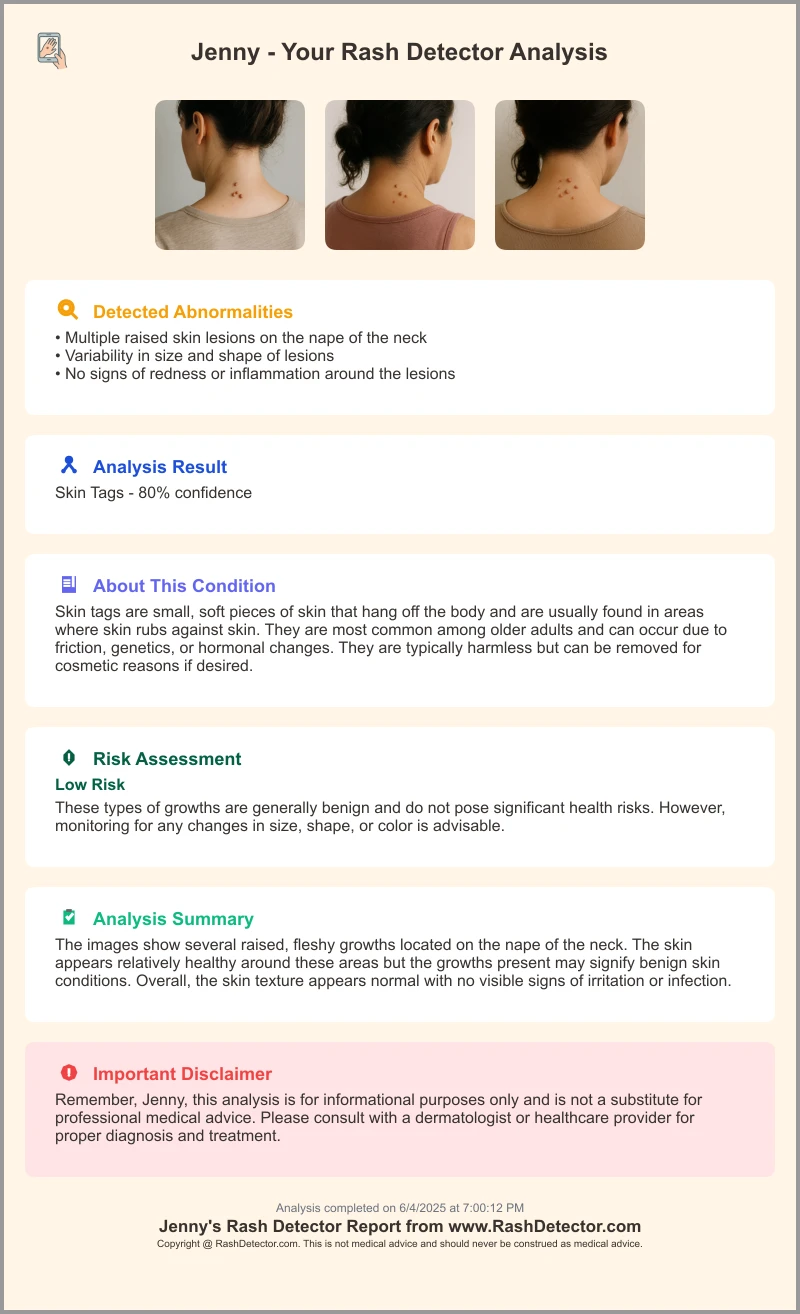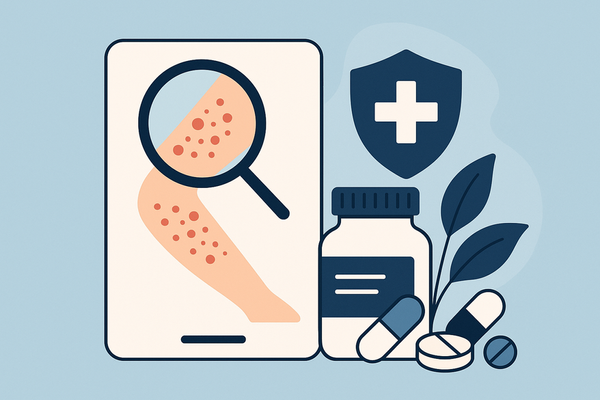Diet for Eczema Relief: How to Soothe Your Skin with Anti-Inflammatory Foods
Discover how a diet for eczema relief can reduce inflammation and ease flare-ups with anti-inflammatory foods like omega-3s, antioxidants, and probiotics.

Estimated reading time: 8 minutes
Key Takeaways
- Nutrition’s role: A balanced, anti-inflammatory diet can support skin barrier repair and reduce eczema severity.
- Elimination strategy: Identifying triggers through careful removal and reintroduction helps personalize relief.
- Anti-inflammatory staples: Omega-3 fatty acids, antioxidants, and probiotics are skin-supportive powerhouses.
- Avoid common allergens: Dairy, eggs, nuts, soy, gluten, and processed sugars often spark flare-ups.
- Holistic care: Combine dietary shifts with stress management, quality sleep, and gentle skincare.
Table of Contents
- Introduction
- Section 1: The Link Between Diet and Eczema
- Section 2: Key Dietary Strategies for Eczema Relief
- Anti-Inflammatory Foods That May Help
- Common Dietary Triggers to Avoid
- Section 3: Developing Your Diet for Eczema Relief
- Practical Tips for Designing an Eczema-Friendly Meal Plan
- Sample Meal Ideas & Recipes
- Working with Healthcare Professionals
- Section 4: Additional Considerations and Lifestyle Factors
- Real-World Testimonials & Case Studies
- Conclusion
- FAQ
Introduction
Eczema, or atopic dermatitis, is a chronic skin condition marked by dry, itchy, and inflamed patches that impair the skin’s barrier and increase sensitivity. Beyond visible rashes, eczema can disrupt sleep and cause emotional stress, affecting daily life. Many seek new ways to curb flare-ups and improve skin health.
An emerging strategy is a diet for eczema relief. By focusing on anti-inflammatory foods and cutting out common triggers, you may calm inflammation from the inside out. In this post, we explore nutrients that rebuild the skin barrier, foods to avoid, and how to design a symptom-soothing meal plan.
Section 1: The Link Between Diet and Eczema
Eczema arises from genetics, environment, and immune overreaction. Your diet can tip the balance toward more or less inflammation. What you eat influences:
- Systemic inflammation – certain fats, sugars, and additives can trigger inflammatory pathways and worsen skin irritation.
- Skin barrier function – nutrients like vitamin E, vitamin C, and essential fatty acids help maintain healthy, hydrated skin.
Studies show that people with atopic dermatitis often have food allergies or intolerances that spark flare-ups. Elimination diets—where you remove suspect foods for weeks and then reintroduce them one at a time—can help identify triggers. However, this approach should be guided by a professional to avoid nutrient gaps.
Early data suggest that reducing pro-inflammatory foods (refined carbs, processed oils) and boosting anti-inflammatory nutrients (found in fish, fruits, and fermented foods) can offer relief. A balanced, anti-inflammatory eating pattern supports skin health and may decrease eczema severity over time.
Section 2: Key Dietary Strategies for Eczema Relief
2.1 Anti-Inflammatory Foods That May Help
- Omega-3 Rich Foods
– Fatty fish (salmon, mackerel, sardines), flaxseeds, chia seeds, and walnuts.
– Omega-3 fatty acids (EPA and DHA) reduce pro-inflammatory cytokines and promote skin cell health.
– Tip: Grill salmon lightly on low heat to preserve omega-3s. - Antioxidant-Rich Foods
– Berries (blueberries, strawberries), leafy greens (spinach, kale), and colorful veggies (bell peppers, carrots).
– Antioxidants neutralize free radicals, protecting skin cells and helping inflammation subside. - Probiotics and Fermented Foods
– Plain yogurt, kefir, sauerkraut, kimchi.
– Beneficial bacteria may balance gut microbes, modulate immune responses, and strengthen the gut-skin axis.
– Tip: Start with one tablespoon of sauerkraut daily and work up to a quarter cup.
2.2 Common Dietary Triggers to Avoid
- Cow’s Milk and Dairy Products
– A top allergen in many children and adults with eczema. - Eggs, Nuts (Peanuts and Tree Nuts), Soy, Wheat/Gluten
– Reactions occur in 10–30% of eczema patients. - Processed Foods and High-Sugar Items
– Added sugars and additives fuel systemic inflammation and may aggravate itching. - Tips for Safe Elimination
– Keep a detailed food diary to record meals and symptom changes.
– Remove one category at a time for 2–4 weeks before reintroducing under guidance.
– Work with a registered dietitian to ensure you meet nutritional needs.
Section 3: Developing Your Diet for Eczema Relief
3.1 Practical Tips for Designing an Eczema-Friendly Meal Plan
- Focus on Whole, Unprocessed Foods
– Lean proteins: fish, poultry, legumes.
– Whole grains: brown rice, quinoa, oats.
– Fresh fruits and vegetables: a rainbow of colors. - Omega-3 Inclusion
– Aim for 2–3 servings of fatty fish or plant-based omega-3 sources weekly. - Fermented Foods
– Incorporate yogurt, kefir, or fermented veggies daily or several times a week. - Hydration Strategy
– Drink at least eight glasses (about 2 liters) of water daily to support skin moisture. - Professional Guidance
– Get allergy testing and nutrition advice before major elimination—crucial for children.
3.2 Sample Meal Ideas & Recipes
Breakfast
– Oatmeal with chia seeds, ground flaxseeds, mixed berries, and a dollop of plain yogurt.
Anti-inflammatory star: flaxseeds. Tip: Cook oats on low heat to preserve nutrients.
Lunch
– Grilled salmon salad with spinach, avocado, bell peppers, and olive oil vinaigrette.
Key ingredients: salmon (omega-3), spinach (antioxidants).
Dinner
– Turmeric-seasoned chicken stir-fry with broccoli, carrots, and quinoa.
Turmeric’s curcumin helps block inflammatory signals.
Snacks
– Carrot sticks with hummus
– Kefir smoothie with banana and spinach
– Handful of walnuts for crunchy, anti-inflammatory fats
3.3 Working with Healthcare Professionals
- Registered Dietitian/Nutritionist
– Create a personalized, balanced plan.
– Ensure nutrient adequacy during eliminations and reintroductions. - Dermatologist Coordination
– Integrate dietary changes with topical treatments and medical therapies for comprehensive care.
Section 4: Additional Considerations and Lifestyle Factors
Stress Management
- High cortisol from stress can worsen immune responses and trigger flares.
- Techniques: mindfulness meditation, yoga, deep-breathing exercises to calm the mind. For a deeper dive into how stress triggers rashes, see stress-related rash triggers.
Sleep Quality
- Poor sleep raises inflammatory markers and intensifies itching.
- Tips: keep a consistent bedtime, create a cool, dark bedroom, and limit screen time before sleep. Learn more at sleep’s impact on skin health.
Hydration & Skin Care
- Drinking enough water supports skin barrier repair from within.
- Pair your diet with gentle, fragrance-free moisturizers to lock in moisture and protect from irritants—consider an oatmeal bath for rash.
To objectively track your skin’s response to dietary shifts, consider using Rash Detector, an AI-powered skin analysis app that generates a thorough report after you upload a few rash photos. Below is a sample report to illustrate how you can monitor improvements over time:

Real-World Testimonials & Case Studies
- Case 1 (Anonymous adult): After cutting dairy and adding probiotic yogurt daily, reported a 40% drop in flare-ups over three months.
- Case 2 (Anonymous parent): Child’s itching reduced by half following a week-long elimination of eggs and processed snacks.
- Note: Results vary. Personalization and professional oversight are key.
Conclusion
A targeted diet for eczema relief can help reduce inflammation, strengthen your skin’s barrier, and ease flare-ups. By prioritizing anti-inflammatory nutrients—omega-3s, antioxidants, probiotics—while avoiding common triggers, you can support smoother, less irritated skin. Combine dietary changes with stress management, proper sleep, and gentle skincare for a holistic approach. Always consult healthcare professionals—dermatologists and registered dietitians—to tailor your plan safely and effectively.
FAQ
- Can diet alone cure eczema?
Answer: While diet can significantly reduce inflammation and improve skin health, it's best used alongside medical treatment for comprehensive relief. - How long does it take to see improvements after changing diet?
Answer: Many people notice changes within 4–12 weeks, but timelines vary based on individual triggers and adherence. - Do probiotics really help with eczema?
Answer: Probiotics may balance gut microbiota and modulate immune responses, which can lead to reduced eczema severity for some individuals. - Should children follow elimination diets?
Answer: Children can benefit from elimination diets, but they should always be supervised by a pediatrician or registered dietitian to ensure proper nutrition.





